calsfoundation@cals.org
Bodcaw (Nevada County)
| Latitude and Longitude: | 33°33’33″N 093°24’26″W |
| Elevation: | 358 feet |
| Area: | 3.00 square miles (2020 Census) |
| Population: | 121 (2020 Census) |
| Incorporation Date: | May 23, 1969 |
Historical Population as per the U.S. Census:
|
1810 |
1820 |
1830 |
1840 |
1850 |
1860 |
1870 |
1880 |
1890 |
1900 |
|
– |
– |
– |
– |
– |
– |
– |
– |
– |
– |
|
1910 |
1920 |
1930 |
1940 |
1950 |
1960 |
1970 |
1980 |
1990 |
2000 |
|
– |
– |
– |
– |
– |
– |
158 |
197 |
161 |
154 |
|
2010 |
2020 |
|
|
|
|
|
|
|
|
|
138 |
121 |
|
|
|
|
|
|
|
|
Bodcaw is a town in southern Nevada County on State Highway 53, about sixteen miles south of Prescott (Nevada County).
The name Bodcaw was first given to a creek in Nevada County. It appears on a map from 1824, spelled Bodcau. The name is thought to be either from the Choctaw word “bokko,” meaning hillock or mound, or a misreading of the French name Bodeau or Badeau.
The Caddo, who lived in the Red River valley, used to hunt as far north as Bodcaw. Among the first white settlers to claim land in the area were Jenkins Scott in 1855, David Montgomery in 1860, and Robert Berry in 1861. A post office opened in Bodcaw in 1878, and a stagecoach stop was established. By 1890, Bodcaw had a general store, a steam grist and lumber mill, and a cotton gin.
By 1890, an academy had also been established in Bodcaw. Dozens of students from the surrounding area attended the school. The Bodcaw Academy, run by the Baptist church, originally consisted of two wooden-frame buildings, both two stories tall. Early in the twentieth century, an addition was built that connected the two buildings. Historian James Harris Atkinson attended the academy around 1906. The academy was damaged by a tornado in 1915 and was torn down a year or two later.
Bodcaw continued to have an elementary school and a high school for several more years. In 1941, several rural school districts were consolidated into the Bodcaw school district. Desegregation of schools in Nevada County was accomplished by 1969, resulting in more school consolidation. The Bodcaw School District eventually became part of the Nevada School District, with school buildings in Rosston (Nevada County).
Improved transportation and increased mechanization of farming caused towns such as Bodcaw to decline in population after the middle of the twentieth century. The Bodcaw post office was closed in 1959. Ten years later, the remaining residents decided to incorporate the community as a town, making Bodcaw eligible for local taxation and for matching funds from the state to provide such services as street maintenance and water and sewer service. In 1970, the U.S. Census counted 158 residents of Bodcaw. The town grew for a few years but then diminished, dropping to 138 residents by 2010. The population is largely white, although an African-American cemetery is located near Bodcaw.
The Baptist church was burned to the ground in 1980 in what is believed to have been a case of arson.
A grocery store next to the highway was the main business in Bodcaw for many years. When it closed in 2009, the building was acquired by Jack Daniels, who opened the Bodcaw Family Supper Club, which offers concerts and meals once a month.
Virginia Dell Cassidy was born in Bodcaw in 1923. In 1946, she gave birth to her first son, William Jefferson Blythe IV, whose father had died in an automobile accident a few months earlier. This son grew up with the name Bill Clinton, having taken the last name of his stepfather, Roger Clinton, and served as Arkansas governor and U.S. president.
For additional information:
Biographical and Historical Memoirs of Southern Arkansas. Chicago: Goodspeed Publishing Co., 1890.
Nevada County Depot and Museum. http://www.depotmuseum.org/ (accessed April 13, 2022).
Steven Teske
Butler Center for Arkansas Studies
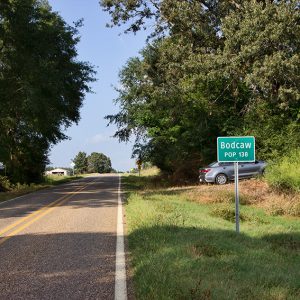 Bodcaw
Bodcaw 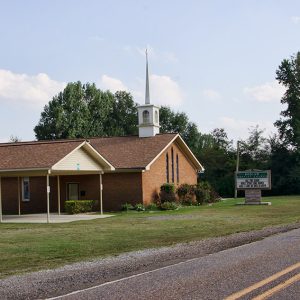 Bodcaw Baptist Church
Bodcaw Baptist Church 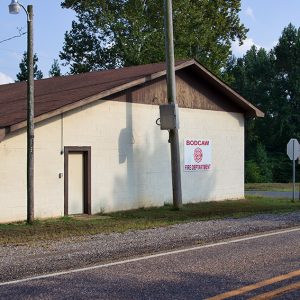 Bodcaw Fire Department
Bodcaw Fire Department 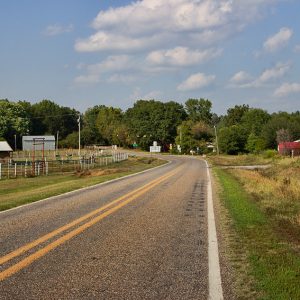 Bodcaw Street Scene
Bodcaw Street Scene 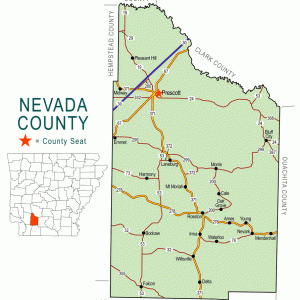 Nevada County Map
Nevada County Map 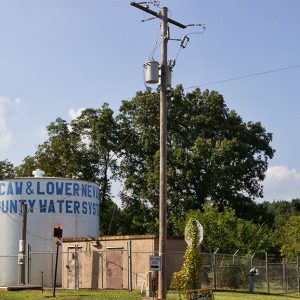 Water Works
Water Works 




Very interesting information. I’ve lived in Bodcaw almost my whole life but never knew anything about its history.